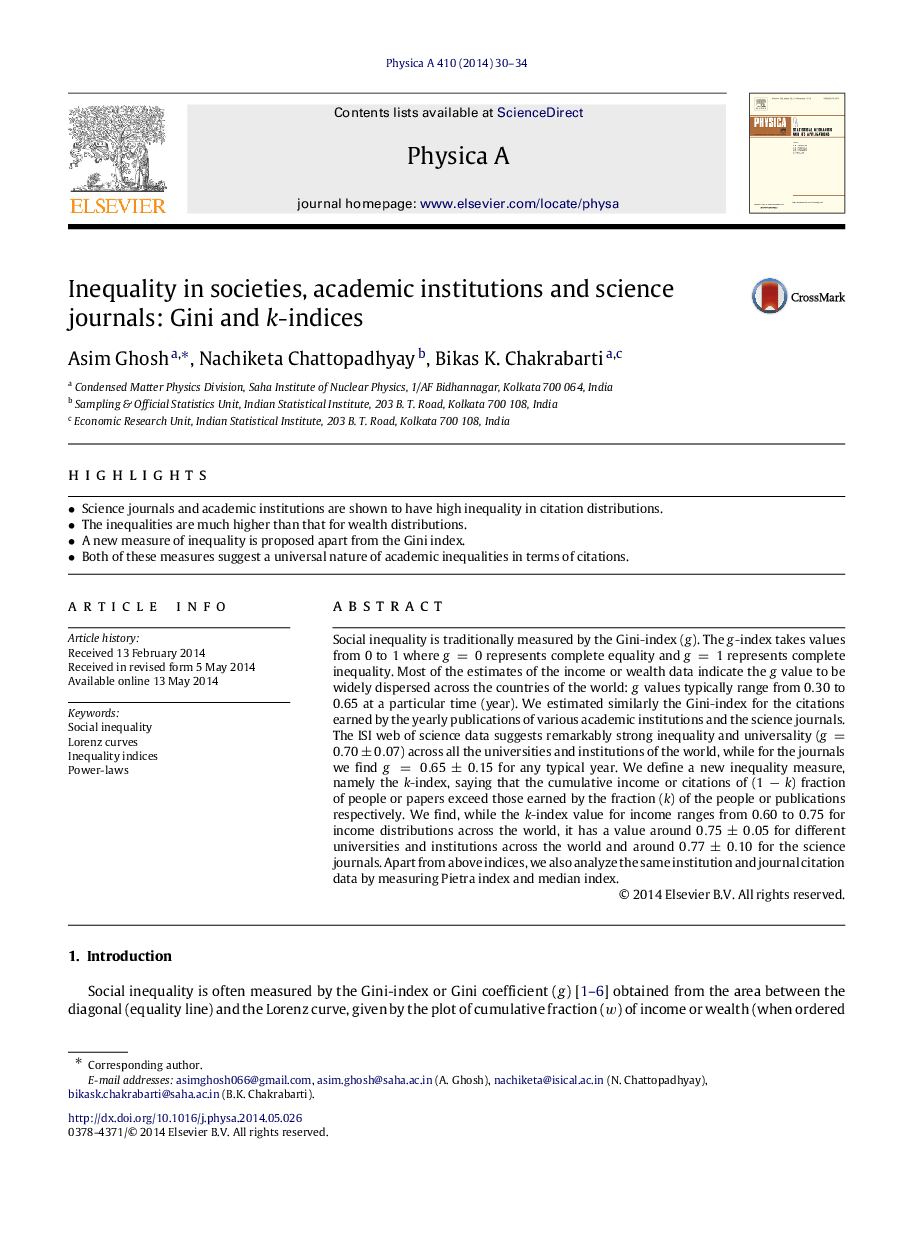| Article ID | Journal | Published Year | Pages | File Type |
|---|---|---|---|---|
| 7380654 | Physica A: Statistical Mechanics and its Applications | 2014 | 5 Pages |
Abstract
Social inequality is traditionally measured by the Gini-index (g). The g-index takes values from 0 to 1 where g=0 represents complete equality and g=1 represents complete inequality. Most of the estimates of the income or wealth data indicate the g value to be widely dispersed across the countries of the world: g values typically range from 0.30 to 0.65 at a particular time (year). We estimated similarly the Gini-index for the citations earned by the yearly publications of various academic institutions and the science journals. The ISI web of science data suggests remarkably strong inequality and universality (g=0.70±0.07) across all the universities and institutions of the world, while for the journals we find g=0.65±0.15 for any typical year. We define a new inequality measure, namely the k-index, saying that the cumulative income or citations of (1âk) fraction of people or papers exceed those earned by the fraction (k) of the people or publications respectively. We find, while the k-index value for income ranges from 0.60 to 0.75 for income distributions across the world, it has a value around 0.75±0.05 for different universities and institutions across the world and around 0.77±0.10 for the science journals. Apart from above indices, we also analyze the same institution and journal citation data by measuring Pietra index and median index.
Related Topics
Physical Sciences and Engineering
Mathematics
Mathematical Physics
Authors
Asim Ghosh, Nachiketa Chattopadhyay, Bikas K. Chakrabarti,
